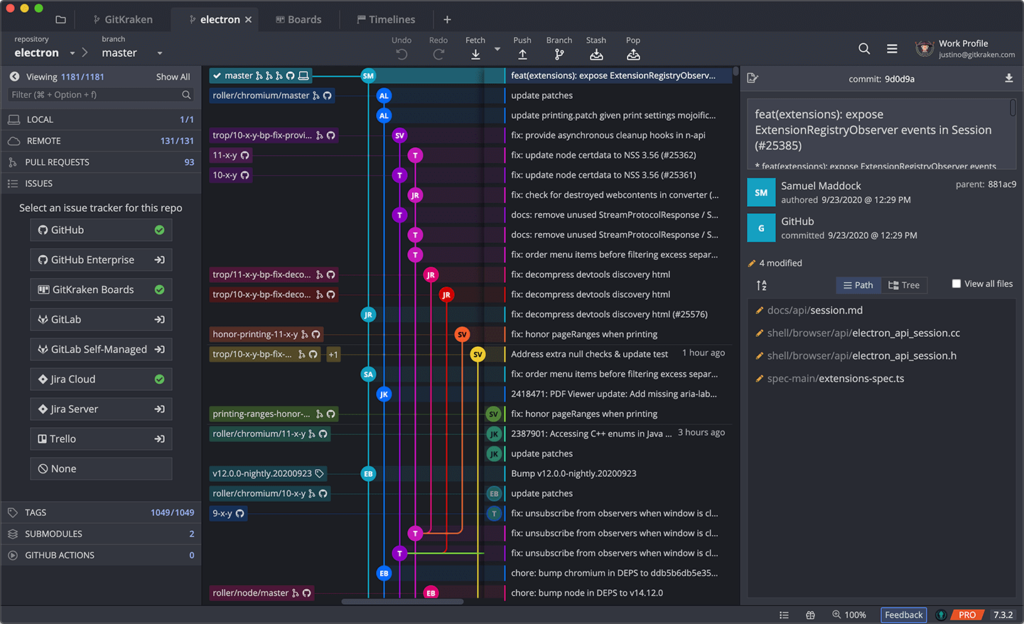This article was written by a guest author.
6 ways to support remote software developers
As work from home policies evolve while the world begins to emerge from the COVID-19 Pandemic, many software developers will continue to work remotely.
Mental health issues have seen a significant surge with the onset of the pandemic and related seclusion. Four out of ten adults in the US reported suffering symptoms of anxiety, part of which was caused by isolation.

Software Developers and Mental Health
Given the reality that mental illness is on the rise, coupled with the reality that software developers also reported higher rates of suffering from related issues,, companies need to ensure that they look after their employees, especially during these unprecedented times.
But why should the company care about the mental health of their staff—in this case, their software developers? The answer is quite simple. When the employee suffers, the company suffers.
Software developers play a vital role in the running of almost every business in nearly any industry you can think of, and as technology continues to grow so will their influence in the workforce. Simply put, they are indispensable.
A 2017 study by Graziotin et al. showed that mentally-fatigued, sleep-deprived and depressed developers are more likely to miss deadlines, make mistakes and write bug-ridden code,
Before we delve into tips for protecting the health of software developers, let’s dissect the cause of this pernicious problem. What is it specifically about software developers that make them prone to mental illnesses?
What’s the link between software devs & mental health?
According to a study by Dr. Nayak of the International Journal of Humanities and Social Science Invention, a developer’s job comprises various factors that can induce high levels of anxiety and sleep deprivation.
This is no surprise given that a developer’s job is quite demanding on many levels. Just some of the stress-inducing factors that can affect the mental health of software developers include:
- Too much screen time
- Lack of physical activity required
- Constant changes in technology
- Pressure to keep up with the trends in software development
- Meeting high client expectations
Now of course, these pressures are not necessarily unique to software developers and the technology industry, and many other people in the workforce experience these same challenges.
How do you keep software developers happy?
Here are 6 ways companies can support their software developers who may be struggling with mental health problems:
1. Promote Remote Workout Sessions
An important part of mental health is physical activity. Let’s be honest, software development is not a physically demanding job.
It’s sedentary nature coupled with remote work-induced isolation is more likely to aggravate levels of depression and anxiety. When no one is around for company, there lies a very simple solution: exercise.
Exercise has proven itself to be almost as effective as antidepressants.
Short workout routines can be done before work, during breaks or after work hours. Team leaders can sensitize their software developers about the benefits of this highly recommended activity, and a trainer can be hired to organize and facilitate remote workout sessions via teleconferencing tools.
Developers can also consider implementing a wide range of exercises on their own. From simply taking a brisk walk to elevate your heart rate to a jog or a full-fledged high intensity workout session, every exercise can help improve mental health.
Basically, any physical activity that elevates your heart rate and works a sweat will promote the release of happiness hormones as well as reduce levels of anxiety and depression.
2. Hold Regular Meetings to Reduce Isolation
As mentioned earlier, one of the many causes of anxiety during the pandemic was isolation. The dynamic of remote teams does injustice to the dynamic of a workplace.
Before the pandemic, many software developers worked in an office setting, which gave them the opportunity to interact face-to-face, make jokes, go out for lunch, and do other activities that diminished any sense of seclusion.
When social distancing and quarantine guidelines were enforced, app developers were forced to work remotely and often alone. Feelings of loneliness and isolation lead to the deterioration of mental health of remote workers, software developers included.
Holding frequent productive teleconference meetings can help reduce feelings of isolation among remote teams. These meetings can be formal or informal, and can be conducted using tools like Zoom or Microsoft Teams. Participants can discuss weekly goals and milestones and successes, or even what they did over the weekend. Teleconferences are a great way to start out and finish the workweek as it gives software developers the opportunity to connect with fellow co-workers.
Also consider other, informal virtual team building activities like game nights,
3. Encourage Set Break Periods
People stress upon the importance of quality work. Equally important is the quality of breaks. All work and no play makes Jack a dull developer. Even the best engines need routine maintenance.
There’s a right way to take a break, and there’s a wrong way. Research suggests that activities like mindless eating, caffeine indulgence, online shopping and venting are not productive ways of taking a break. Rather, they can increase fatigue and burnout.
After a long coding session, one of the previously mentioned activities may sound tempting, but instead, consider encouraging or partaking in these (non-work-related; this is key) activities during break periods:
- Power nap
- Take a walk
- Stretch
- Cook
- Play a quick game, like solitaire, or work on a puzzle
- Meditate
- Practice yoga
- Play with your pet 🐶🐱
- Read
Developers can engage in any hobby that helps take the edge off and increase oxytocin levels.
4. Include Mental Health Coverage in Your Insurance Plan
The reality of mental health is becoming more apparent these days. Like physical illness, you cannot just tell someone not to be depressed or not to get anxious. It’s something they cannot fully control, like a cold or fever.
Given that many companies provide health insurance for physical ailments, today it is equally important to provide coverage for mental health issues as well.
A 2018 study from the Journal of Systems and Software found that unhappy coders are more likely to suffer work withdrawal, lower levels of motivation, and poor quality of work. The external results noticed with coders suffering from this were low code quality and discharge coding.
To enhance, let alone protect, the quality of software development, it would be in a company’s best interest to keep the happiness levels of software developers high and prevent any possible deterioration of mental health.
5. Offer Counseling Sessions with Online Psychologists
During these times, employees may be more hesitant about seeing counsellors face-to-face. The next best thing is to speak to one online.
After a hard day of work or a workplace incident, a developer might want to healthily vent out certain issues they faced or problems they might have at work, and organized counseling sessions can be very helpful in these types of situations.

There are several resources available for software developers who need therapy. Take advantage of online counseling services and be sure to take note of reviews and the average pricing of each.
6. Time Management Tools to Curb WFH Burnout
Crunching deadlines for software developers can be a herculean task. But you’re more than likely to finish it if you appropriately manage your time and organize your tasks.
Many software development teams already plan coding projects by using time-tracking software and other project management tools. Tools like this allow you to organize your tasks for each day and track your time for each task (with built-in tools to account for distractions or emergencies) so that you can track your productivity levels for the day.
Keep Your Remote Dev Team Happy
Companies need to focus on providing health insurance that covers mental health, promoting team-building activities, organizing both formal and informal remote meetings, and ensuring that healthy teamwork is part and parcel of the company work ethic.
As individuals, software developers can manage their work from home by scheduling their tasks, managing their time effectively and taking breaks. To enhance their work, working out and spending time in meditation are tried and tested methods of alleviating fatigue, burnout, depression, and anxiety.
 GitKraken MCP
GitKraken MCP GitKraken Insights
GitKraken Insights Dev Team Automations
Dev Team Automations AI & Security Controls
AI & Security Controls








